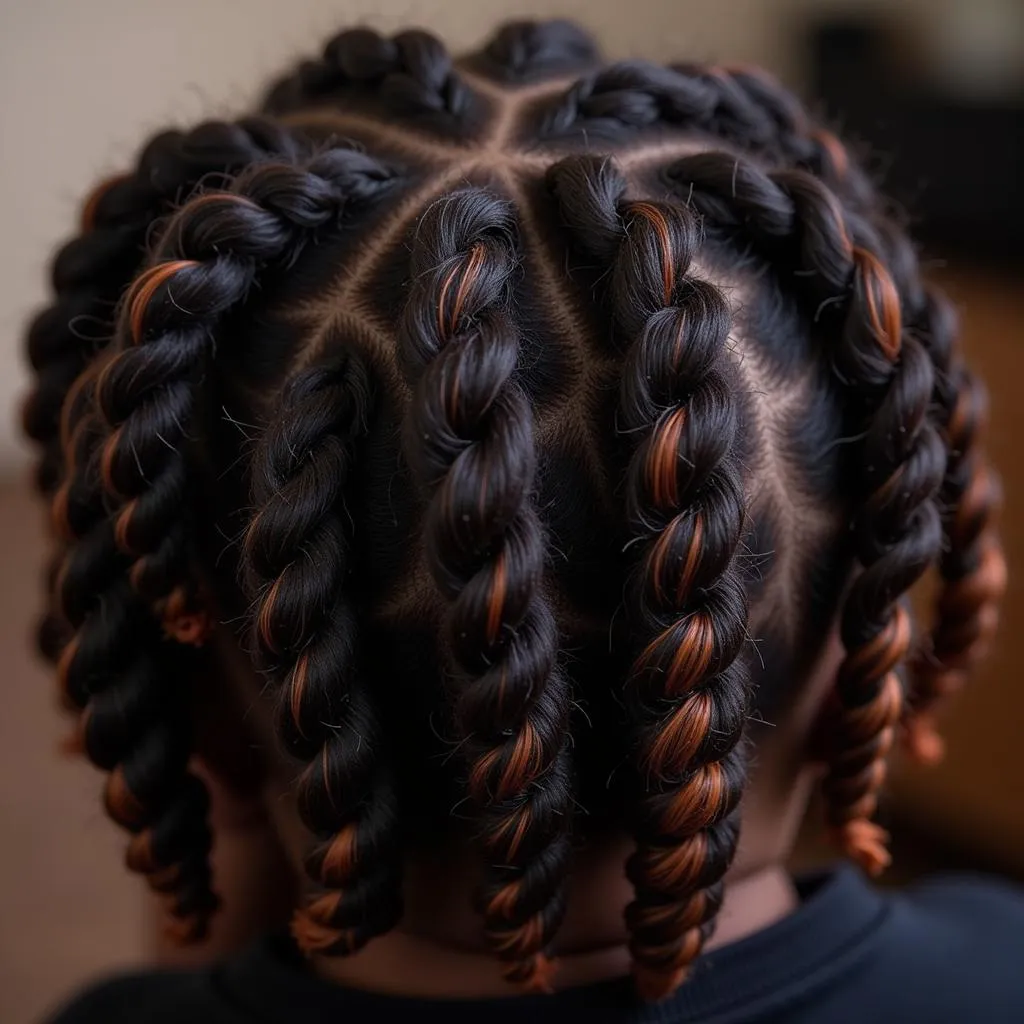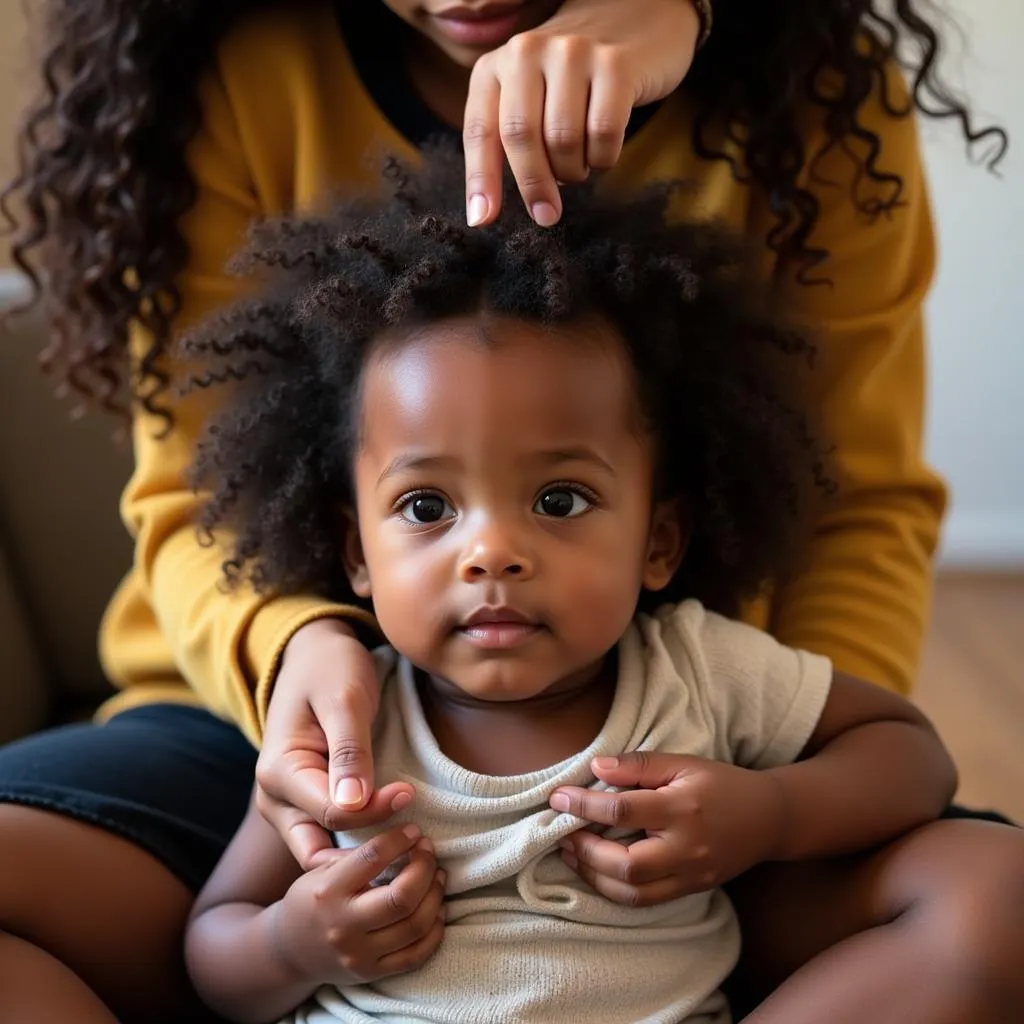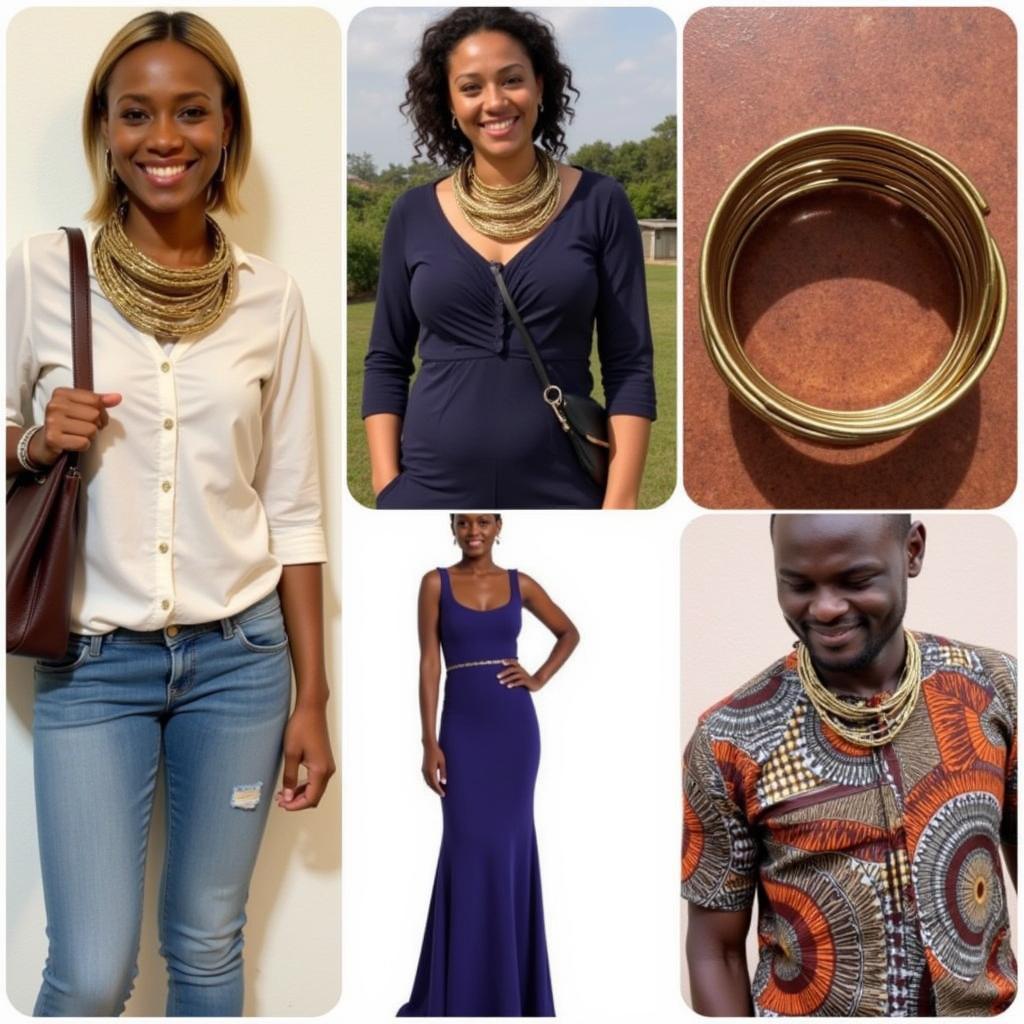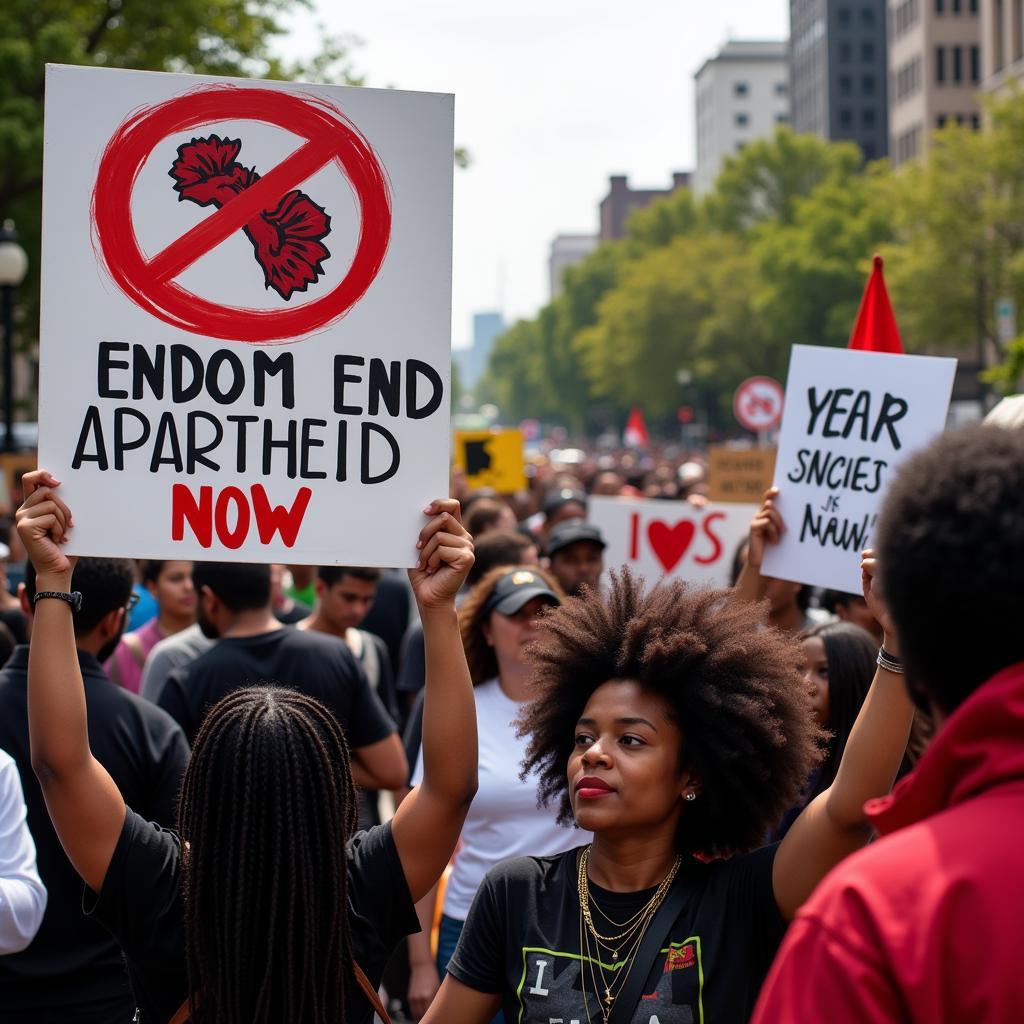Understanding African Baby Hair Knots: A Guide for Parents
African Baby Hair Knots, also known as tightly curled hair or fairy knots, are a common characteristic of afro-textured hair. These tiny knots can be frustrating for parents to manage, especially if they are unfamiliar with the unique needs of this hair type. This comprehensive guide will delve into the causes, care tips, and cultural significance of African baby hair knots.
What Causes African Baby Hair Knots?
African hair strands have a unique elliptical shape with sharp bends and twists, making them prone to tangling and knotting. These knots often occur close to the scalp, forming tiny, raised bumps that resemble knots. Several factors contribute to their formation, including:
- Hair Texture: The tightly coiled nature of afro-textured hair increases the likelihood of strands intertwining and forming knots.
- Friction: Rubbing against pillows, car seats, or clothing creates friction that can lead to tangles and knots, especially in dry hair.
- Dryness: Afro-textured hair tends to be drier than other hair types due to the structure of the hair shaft, which makes it difficult for sebum (natural oil) to travel down the hair strands. This dryness increases friction and susceptibility to knotting.
- Lack of Moisture: Insufficient hydration further exacerbates dryness, making the hair brittle and prone to breakage.
Caring for African Baby Hair Knots
Managing African baby hair knots requires a gentle and consistent approach. Here are some essential tips to keep those knots at bay:
- Moisturize Regularly: Use a water-based leave-in conditioner or hair oil to keep the hair hydrated. Apply moisturizer daily, focusing on the ends and areas prone to knots.
- Detangle Gently: Use a wide-tooth comb or a detangling brush specifically designed for afro-textured hair. Start detangling from the ends and work your way up to the roots to minimize pulling and breakage.
- Protective Styling: Opt for protective hairstyles like braids, twists, or cornrows to minimize manipulation and reduce friction.
- Avoid Over-Washing: Frequent washing can strip the hair of its natural oils, leading to dryness. Limit hair washing to once or twice a week and use a moisturizing shampoo and conditioner.
- Satin or Silk Protection: Sleeping on a satin or silk pillowcase or using a satin/silk scarf at night can reduce friction and prevent tangles.
 Close-up of African baby hair knots
Close-up of African baby hair knots
Cultural Significance and Perceptions
African baby hair knots, while often seen as a hair concern, are also an inherent part of afro-textured hair and hold cultural significance. In some African cultures, these knots are celebrated as a symbol of the hair’s unique texture and beauty.
However, societal beauty standards often prioritize straight and easily manageable hair types, leading to negative perceptions of afro-textured hair, including baby hair knots. It’s essential to challenge these biases and embrace the beauty and diversity of all hair textures.
 Parent gently combing an African child's hair
Parent gently combing an African child's hair
Tips for Parents
Navigating hair care for children with afro-textured hair can seem daunting, but it doesn’t have to be. Here are some additional tips for parents:
- Start Early: Introduce a gentle hair care routine from a young age to establish good habits.
- Be Patient: Detangling afro-textured hair takes time and patience. Avoid rushing the process to minimize discomfort for your child.
- Make it Fun: Incorporate songs, stories, or distractions to make hair time more enjoyable for your little one.
- Seek Professional Help: Consult with a hairstylist specializing in afro-textured hair for personalized advice and styling options.
Conclusion
African baby hair knots are a natural part of afro-textured hair, and understanding their causes and implementing proper care techniques can help manage them effectively. By embracing the unique beauty of this hair type and practicing gentle hair care routines, you can help your child develop a positive relationship with their hair.
FAQs about African Baby Hair Knots
1. Are African baby hair knots permanent?
No, they are not permanent. As the hair grows and the curl pattern loosens with age, these knots tend to become less prominent.
2. Can I cut off African baby hair knots?
While it’s possible to trim the knots, it’s not recommended. Cutting them can lead to uneven hair growth and potentially damage the hair follicles.
3. Are there any products specifically for African baby hair knots?
Yes, there are detangling sprays, leave-in conditioners, and hair oils specifically formulated for afro-textured hair that can help soften and loosen knots.
4. Do African baby hair knots mean my child has a scalp condition?
No, they are not indicative of a scalp condition. However, if you notice excessive dryness, flaking, or irritation, consult with a dermatologist or pediatrician to rule out any underlying issues.
5. How can I make hair time less stressful for my child?
Create a positive and fun environment by incorporating their favorite activities, using gentle techniques, and being patient throughout the process.
For more resources on African hair care, explore our other articles:
- Explore adorable African American baby dolls with hair
- Discover stunning African American flower girl hairstyles for weddings
- Find inspiration for stylish 1-year-old baby girl hairstyles for African American hair
Have more questions or need personalized advice? Contact our team at +255768904061, email us at kaka.mag@gmail.com, or visit our office at Mbarali DC Mawindi, Kangaga, Tanzania. We’re here to assist you 24/7.



